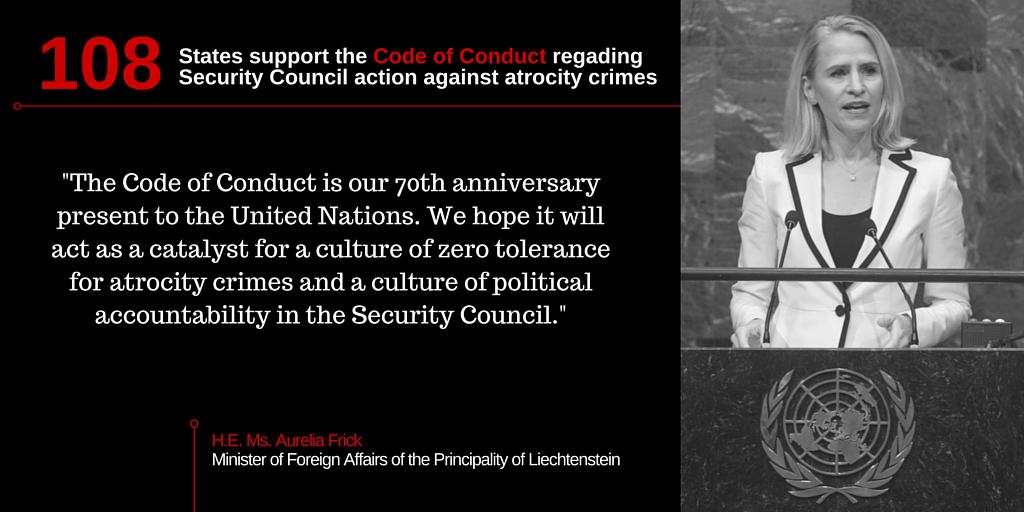As of mid-December 2015 108 Member States of the United Nations have pledged to take decisive action against atrocity crimes and, while serving as members of the UN Security Council (UNSC), not to vote against credible resolutions to that end. Among them are nine of the current members of the Security Council, including two permanent members (France and the United Kingdom). They have done so by expressing support for an initiative led by Liechtenstein in the Context of the ACT (Accountability, Coherence, Transparency) Group whose mission is to reform the prior working methods of the UNSC for the benefit of the States of the General Assembly. The final result of this initiative is the Code of Conduct on Security Council Action against genocide, crimes against humanity and war crimes.

Launching the Code of Conduct at the UN Headquarters in New York on 23 October 2015 – the eve of the 70th anniversary of the United Nations – Liechtenstein’s Foreign Minister Aurelia Frick expressed her hope that it would lead to a shift in the Security Council in two ways – by instilling a culture of zero tolerance for atrocity crimes and a culture of political accountability towards all Member States.
The Code of Conduct responds to a growing sense of frustration, amongst States and civil society, with the Security Council’s failure to adequately respond to some of the worst mass atrocity situations in the world: Syria is perhaps the most prominent and tragic example. Many believe that a willingness to prevent or respond to atrocity crimes should be a minimum standard by which to judge the candidatures of aspiring members of the Security Council.
The launch of the Code of Conduct followed a year-long process of consultations, led by Liechtenstein, in which States, members of civil society and the United Nations Secretariat were able to give input and express their opinions. Liechtenstein worked closely with partners including Hungary, Luxembourg, Switzerland, Amnesty International, Human Rights Watch and the Global Centre for the Responsibility to Protect.
